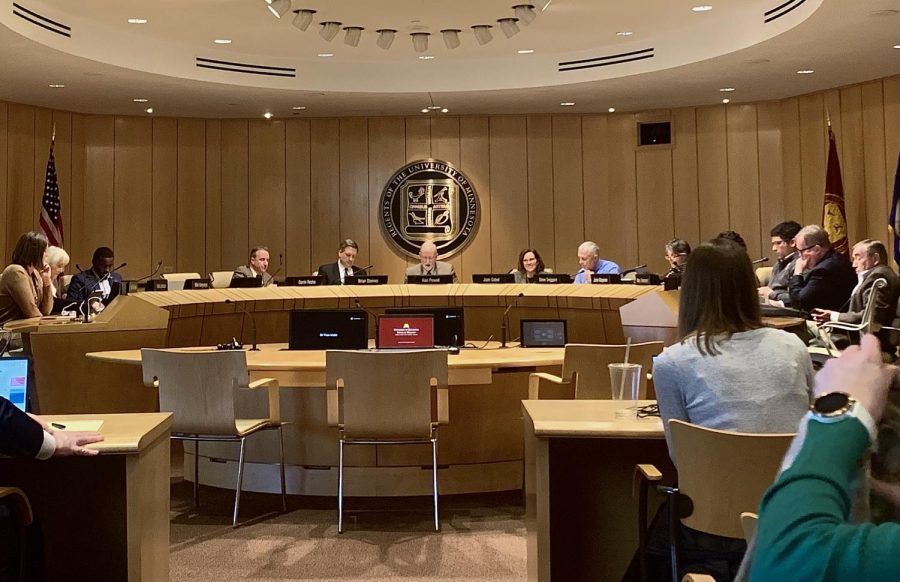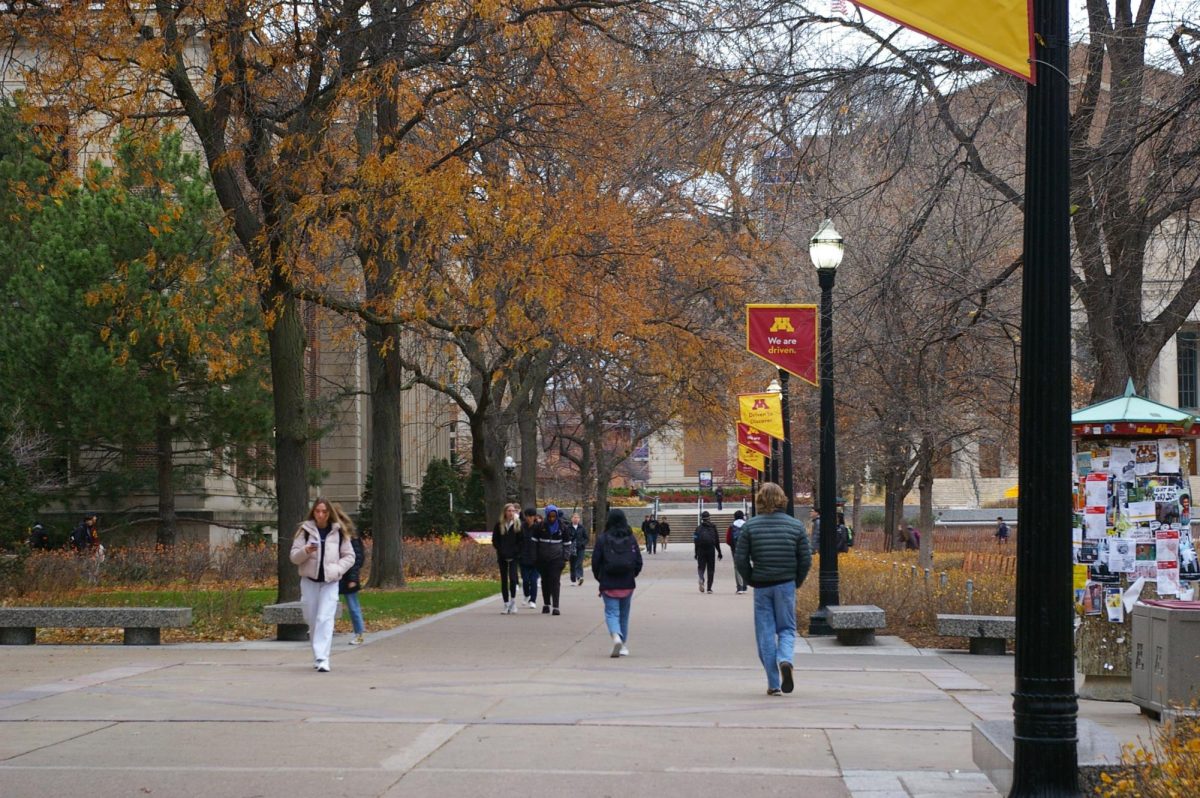The University of Minnesota Board of Regents met in a special meeting Thursday to discuss the search process for a University interim president following President Joan Gabel’s resignation on April 3.
The board agreed on various factors, including the structure of the process and candidate requirements, but remains undecided on the interim president’s salary. Some members said during the meeting they are aiming to make their selection as early as the beginning of May.
Typically, presidential search processes at the University can take place over the course of months. With the recent announcement of Gabel’s departure, the upcoming regent elections and the board’s annual budget meeting approaching, the regents are working at an accelerated pace to temporarily fill the interim presidential position as soon as possible.
According to board Chair Janie Mayeron, Gabel’s last day working at the University will possibly be June 9 before she takes vacation time off.
Board members, including Regent Mike Kenyanya, expressed desire to speed up the search process to ensure overlap between Gabel and the new interim president before Gabel’s last day at the University.
The board will hold its next special meeting on Monday at 3 p.m. to further discuss the process and elect a new vice chair of the board, following former chair Ken Powell’s resignation from the chair position on Monday. Members of the public are encouraged to submit feedback regarding the process through the board’s online comment form.
Candidate selection process
The board elects University presidents when vacancies open and has discretion over the selection process. In its meeting Thursday, members unanimously decided to select the interim president themselves, rather than assemble a separate search committee due to time constraints.
Regent Kodi Verhalen cited the savings of both money and time as her reasoning for wanting the board to conduct the search process themselves.
“It seems incredibly duplicative and a bit overblow to do a full presidential search process,” Verhalen said at the meeting. “We’re hearing criticisms [that] there’s too much administrative expense, well that adds a bunch of administrative expense.”
The board also decided to consider both internal and external candidates for the interim role to generate a broad candidate pool.
Required qualities in an interim president
The board discussed various characteristics they aim to require of candidates, agreeing the future interim president should not desire to become the next permanent president after the interim timeframe.
Board members stated having an interim president who is interested in a permanent role will hinder their ability to focus on the job.
“That interim needs to be focused on this period and being a candidate is distracting and influences decision making that an interim may make,” Regent Mary Davenport said. “That interim needs to be 150% focused on the tasks in front of them.”
Interim president salary
The regents went into overtime at the meeting to discuss the potential salary of the interim president, meeting for about five hours, but did not arrive at a consensus.
Regent Darrin Rosha expressed concern over increasing the salary above the base pay of $609,000 and advocated to lower it to $500,000 or less in a failed motion. Rosha discussed reigning in presidential compensation to salaries resembling those of public service roles.
“It is a paradigm shift that serving as the president of the University has its own reward, in addition to compensation that the vast majority of people in the state would consider a tremendous level of compensation,” Rosha said.
Other regents, including Mayeron, said aligning the interim president salary with the typical market compensation for university presidents is the best course to take.
“I recognize the market for presidents is a very high number and it is a really hard pill to swallow, and they really do not like it within the public and the Legislature,” Mayeron said. “At the end of the day, it needs to be driven by the market and it needs to be paying for the value of the responsibilities that we are placing on this person’s shoulders.”



















